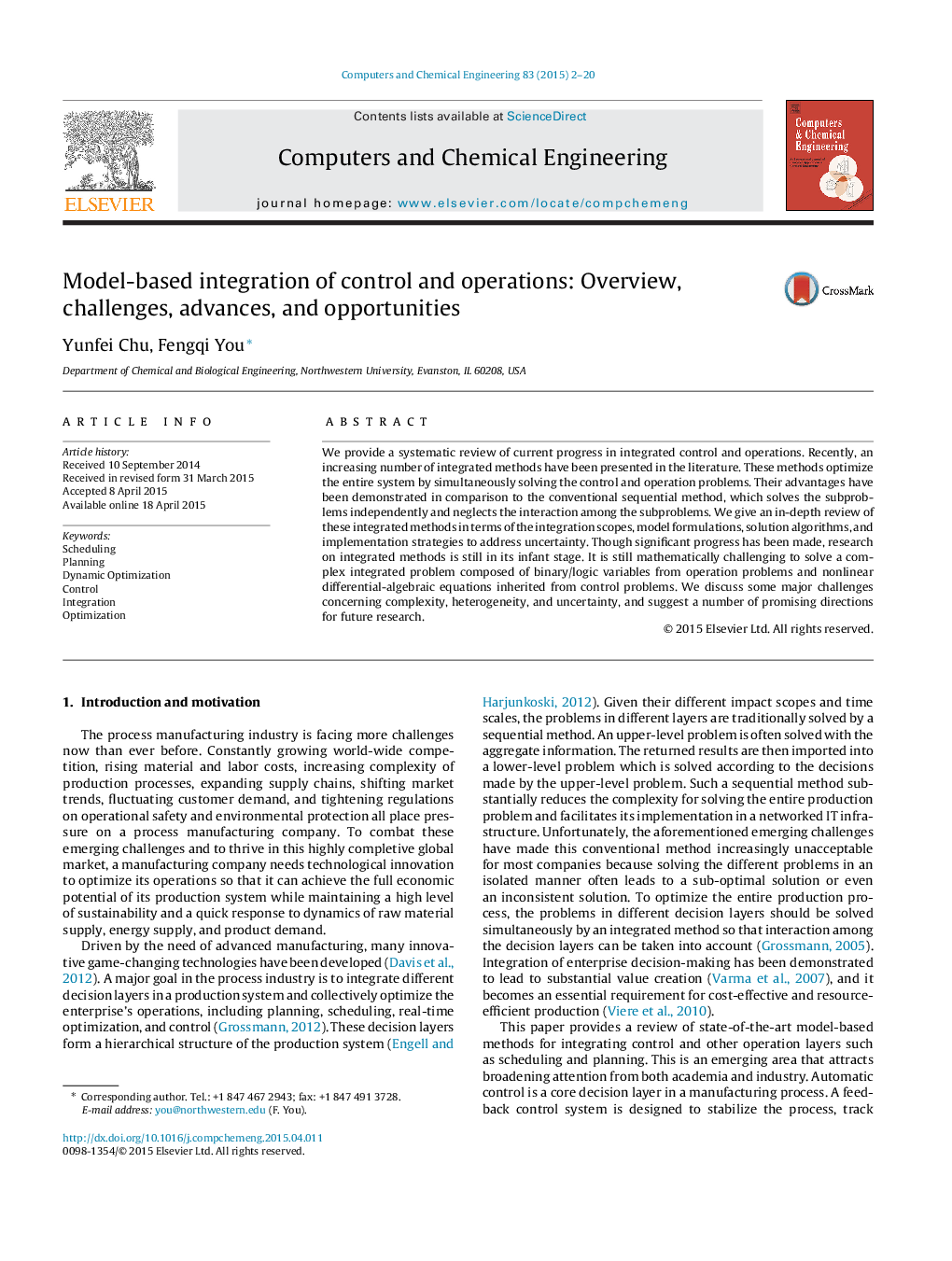| Article ID | Journal | Published Year | Pages | File Type |
|---|---|---|---|---|
| 172155 | Computers & Chemical Engineering | 2015 | 19 Pages |
•Introduction to advantages of emerging integrated methods in comparison of conventional sequential methods.•State-of-the-art review of current progress in integrated control and operations.•Reveal of inherent challenges arising from the integration.•Discussion of promising research directions for future work.
We provide a systematic review of current progress in integrated control and operations. Recently, an increasing number of integrated methods have been presented in the literature. These methods optimize the entire system by simultaneously solving the control and operation problems. Their advantages have been demonstrated in comparison to the conventional sequential method, which solves the subproblems independently and neglects the interaction among the subproblems. We give an in-depth review of these integrated methods in terms of the integration scopes, model formulations, solution algorithms, and implementation strategies to address uncertainty. Though significant progress has been made, research on integrated methods is still in its infant stage. It is still mathematically challenging to solve a complex integrated problem composed of binary/logic variables from operation problems and nonlinear differential-algebraic equations inherited from control problems. We discuss some major challenges concerning complexity, heterogeneity, and uncertainty, and suggest a number of promising directions for future research.
